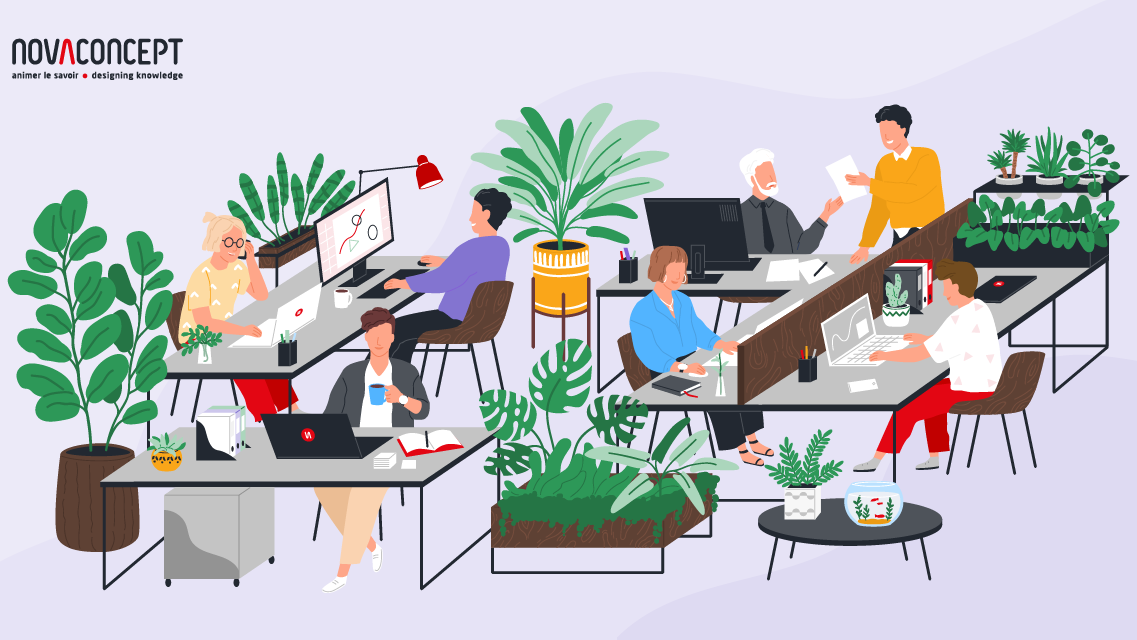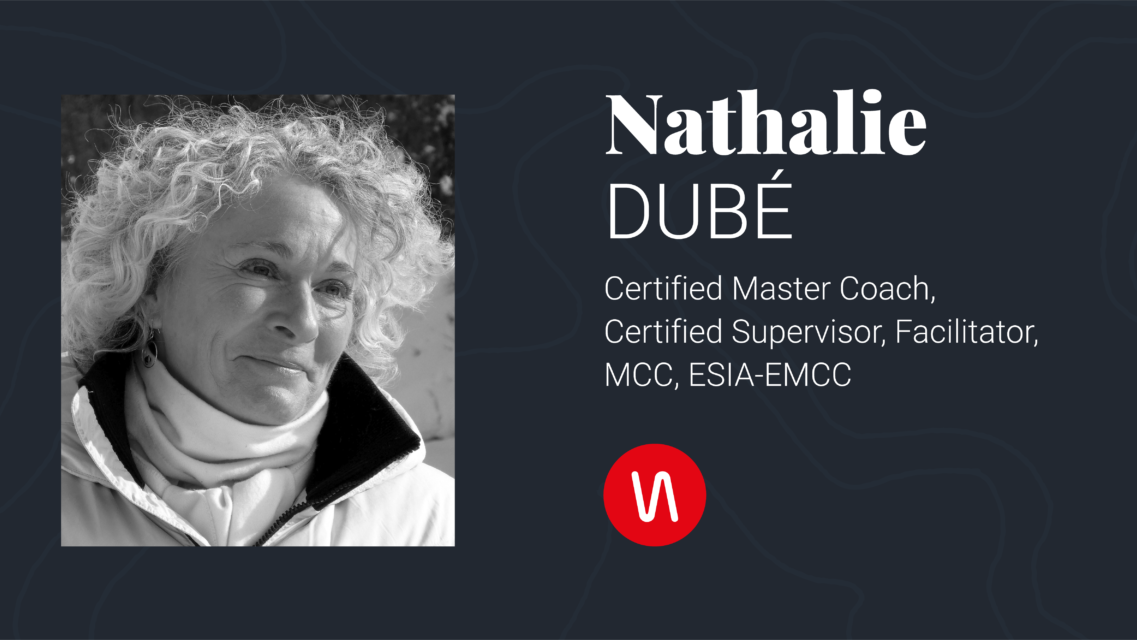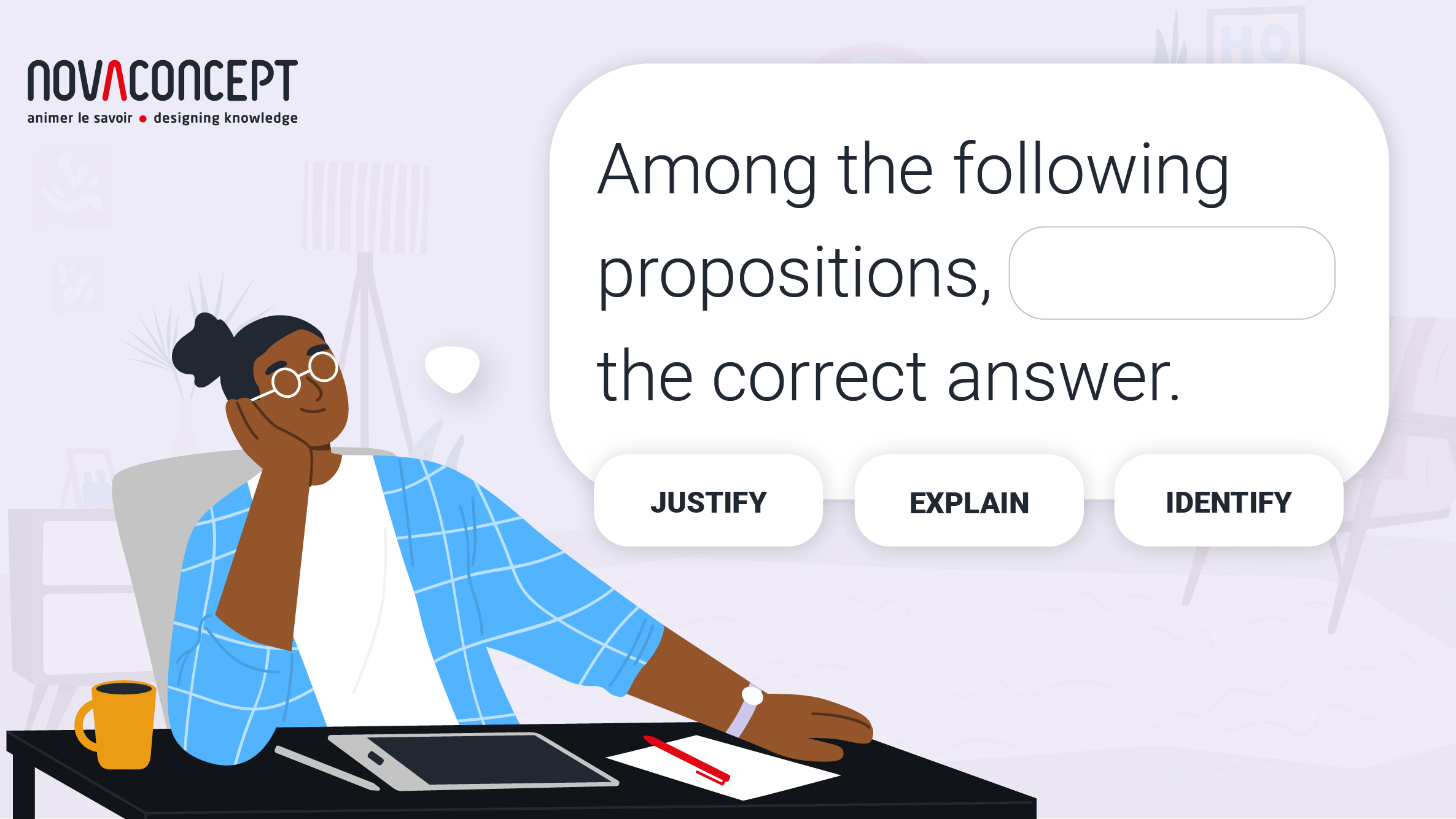There’s a lot of thought given to the place of training within companies. Online training offers countless possibilities in terms of content and methods. A corporate learning culture has many advantages for companies. E-learning, in fact, represents a solution to the labour shortage. Faced with all these options, what would you, as a manager, prefer?
The knowledge to value
Imagine a meeting room with three people about to present a project to their team. The first person describes the project to the group and details its key elements: deliverable deadlines, budget, client information, etc. Then, the second person talks to the group to introduce some of the software needed to complete the project and outline the processes and benefits of each application. The third person moderates the meeting and is active throughout. They give voice to every team member, make sure everyone understands the project, and pay attention to any raised concerns. They end the meeting by motivating the team.
Now imagine the same meeting without the first person. Critical information would be missing. The same goes for the second person. The team cannot finish the project without knowing the processes. But what is the need for the third person in terms of progress on deliverables? Their attitude helps the meeting run smoothly while addressing each team member’s expectations. Their role facilitates collaboration.
In the trio above, the first person embodies knowledge—theoretical knowledge. The second embodies know-how, or the technical application of knowledge. Finally, the third embodies the soft skills and personal behaviours that match the job’s expectations and values. Soft skills can be described as emotional intelligence, active listening, empathy, autonomy, creativity, and more. How do you effectively develop these skills?

Nova recommendations
Getting there requires that the training environment be safe and free from unnecessary stress.
The media used must place the individual at the core of the learning process and also give feedback after each hands-on exercise. Ultimately, it must meet the objectives. To develop their professional soft skills, learners must interact with others to experiment with new behaviours.
At first glance, preparing a training session with role-playing between colleagues seems like an easy solution to improve teamwork or communication. However, you should steer clear of this approach. Take, for example, a workshop on conflict resolution that goes awry and creates real tension between the participants. Put yourself in the learner’s shoes—would you feel comfortable trying new strategies? Virtual reality makes it possible to meet the criteria we mentioned above while avoiding uncomfortable situations. Here’s why:
- Using gamification, virtual reality features avatars and actors. The learner is now in a realistic work situation without running the risk of affecting their relationship with their co-workers.
- Using a VR headset’s immersive qualities elicits emotions that influence decision-making and adds realism to the learning process..
- A learner can repeat exercises as many times as needed in just a few clicks. Since there’s feedback after each attempt, learners can quickly see their errors. These then become a source of information to deepen their understanding. Virtual reality provides a space for reflection and a sense of awareness conducive to learning.
Virtual reality needs a headset, an application and controllers. We offer variations that make the experience more accessible and only require a computer or mobile device. VR is immersive thanks to its 360-degree vision field.
Imagine training to develop soft skills in VR. The learner is alone in a room and the VR headset takes them into an immersive experience. They are ready to start the training with both controllers in hand. Faced with many avatars, they explore choices about how they would react in the scenarios, with no one there to point out their mistakes or pressure them. After several errors in an exercise, crucial feedback helps them better their understanding. The person becomes aware of their patterns and changes certain behaviours at work. Through this realistic learning situation, they are on their way to reaching their full potential.
Lastly, developing soft skills helps both the people and the company grow. Acquiring these skills is within your reach. No matter the challenge, we have a learning solution for you. Visit our website for more information.
Let’s connect!
Do you like this visual? Would you like to make your information visual and accessible? Contact our experts!
This site is protected by reCAPTCHA and the Google Privacy Policy and the the Terms of Services apply.








